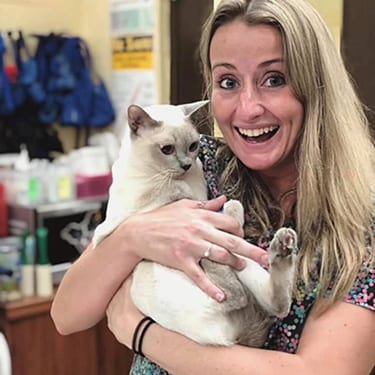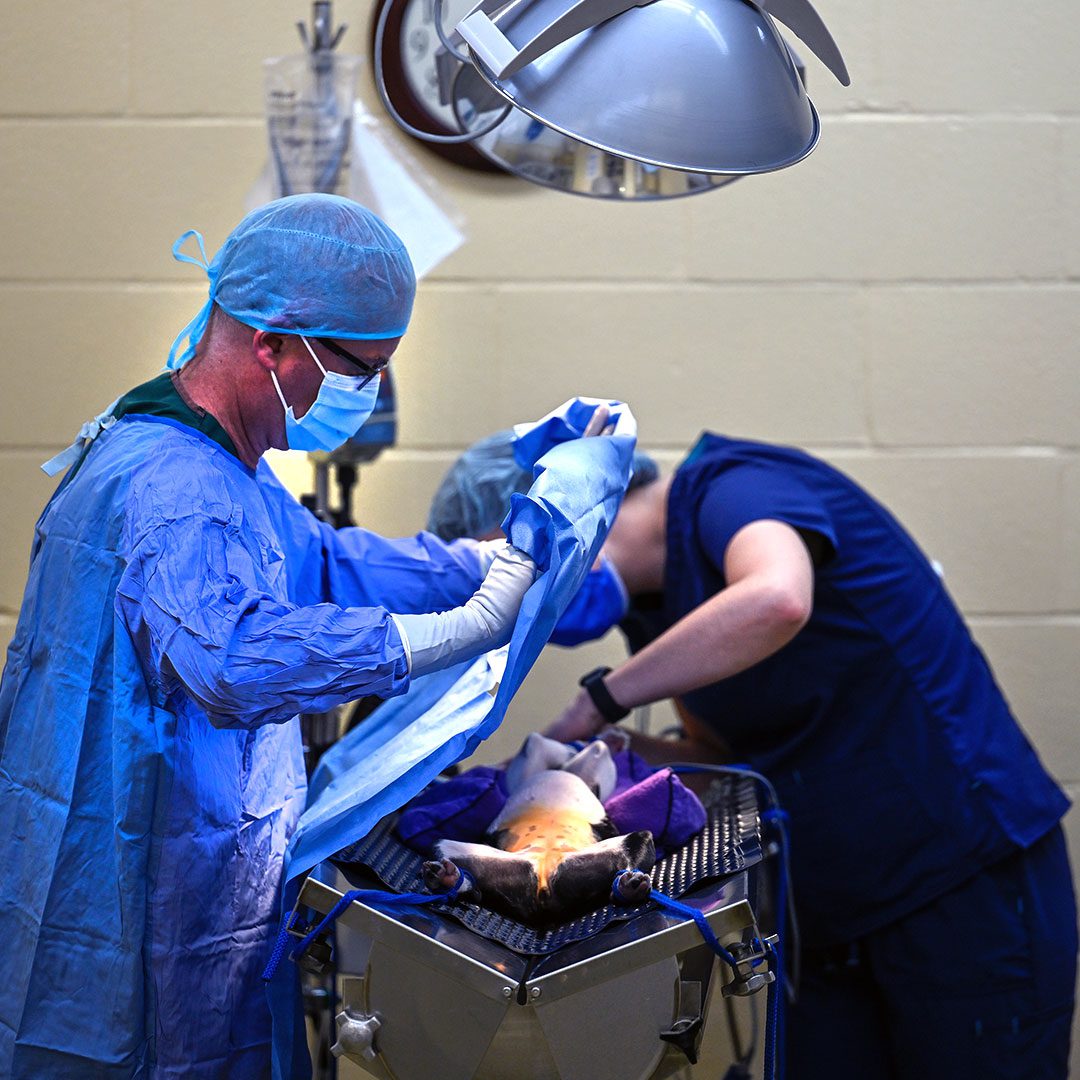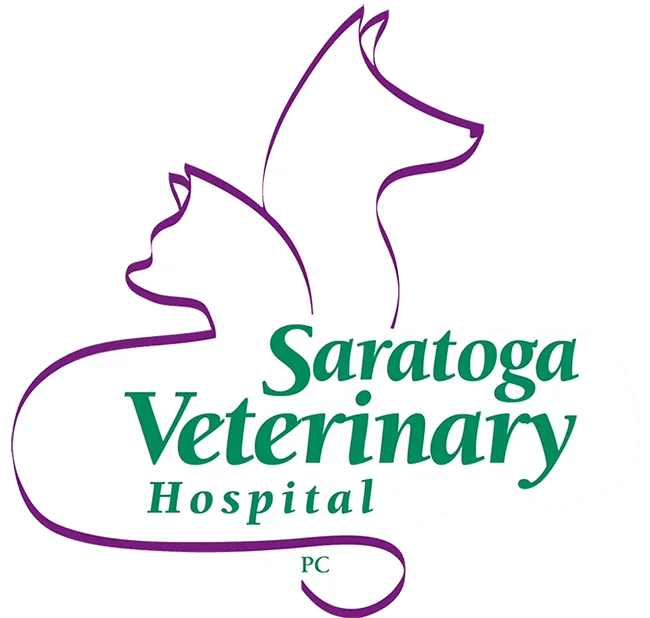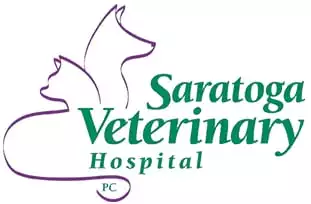AAHA-Accredited Pet Surgery in Wilton
Surgery is something almost every pet will go through at least once in their life. Veterinary medicine has evolved exponentially to accommodate our pets’ needs and offer safer surgical protocols that minimize risk and maximize success. As an AAHA-accredited hospital, we use the highest surgical standards for every pet surgery. At Saratoga Veterinary Hospital, our veterinarians perform routine and complex soft tissue procedures. Additionally, we work with traveling surgeons who visit our hospital to perform orthopedic and endoscopic procedures, as well as ultrasounds for diagnostic purposes.
Call us today at (518) 587-3832 for a pet surgery consultation with our veterinary experts.

Why Your Pet May Need Surgery
Surgery can be either corrective or preventive in nature. Preventive surgeries, like spays and neuters, prevent certain conditions from developing, while corrective surgeries correct current conditions. The choice to do surgery always comes after a long discussion about all your pet’s options before finally settling on a procedure. Common reasons your pet may need surgery include:
- Predisposition for a future condition that can be prevented with surgery such as gastric dilation and volvulus or reproductive cancers
- Development of a mass or tumor
- Injuries that require sutures
- Orthopedic injuries like a torn CCL or fracture
- Eye injuries
- Orthopedic conditions such as hip dysplasia or patellar luxation
- Ingestion of a foreign body
- C-sections
- Bladder or kidney stones
- And more
Imaging & Diagnostics
We use extensive diagnostics to determine the extent of your pet's condition before committing to surgery. Our hospital features an in-house lab where we perform blood tests, fecal exams, urinalyses, skin scrapings, and more. Furthermore, we offer advanced digital imaging in the form of digital X-rays and ultrasound. Our X-ray capabilities involve both full-body X-rays and dental X-rays. Both are crucial for evaluating your pet's internal bone structure. It also provides us valuable insight into your pet's organs and gastrointestinal tract. For a more detailed look at your pet's organs, we use ultrasound. Dr. Steeves performs ultrasound in-house, while Dr. Verra, a traveling veterinarian, visits our hospital on occasion to perform more advanced ultrasounds as well as endoscopies. Ultrasounds use sound waves to create a 2-D image on a screen of your pet's organs at work. They help us assess organ health and even obtain tissue for biopsies.

A Higher Level of Safety
As an AAHA-accredited animal hospital, we adhere to the highest standards of surgical care possible. Your pet is a precious member of your family, and we treat them as such. Our safety protocols are designed within AAHA’s guidelines to minimize your pet’s risk for anesthesia complications. Some of those protocols include:
- Pre-anesthetic blood work and an exam to check for any underlying conditions that may affect your pet's response to anesthesia
- IV catheter to supply fluids that hydrate your pet and stabilize their blood pressure
- Extensive monitoring of their vitals to watch for any changes that may require action
- A dedicated surgical technician with your pet from the start of anesthesia until they wake
- Pain medication before, during, and after surgery to minimize your pet's discomfort
Types of Surgeries We Perform
Our veterinarians are skilled in a variety of soft tissue procedures. Soft tissue involves surgery on muscles, skin, and organs. Common soft tissue procedures include:
- Spays and neuters
- Abdominal surgeries
- Eye surgery
- Cystotomies (bladder surgery)
- Splenectomies (spleen removal)
- Gastropexy (stapling the stomach to prevent bloat)
- And more
For complex orthopedic procedures, we entrust the care of your pet to a traveling surgeon who visits our hospital on an as-needed basis. Orthopedic surgeries are those that involve the joints or bones.
Common orthopedic procedures include:
- TPLO (tibial-plateau-leveling osteotomy) for CCL (cranial cruciate ligament) repairs
- FHO (femoral head ostectomy) surgery for hip dysplasia
- Patella luxation repairs
- Fracture repairs
We also have a traveling veterinarian, Dr. Verra, who comes in to do endoscopic procedures. These procedures involve an endoscope which is either a flexible or rigid tube with a camera and light on the tip and a tiny robotic arm to grab pieces of tissue for evaluation or remove a foreign object. This device can be inserted into bodily orifices, or into very small incisions.
Common endoscopic procedures include:
- Foreign body removal
- Biopsies
- Abdominal surgeries
- And more


